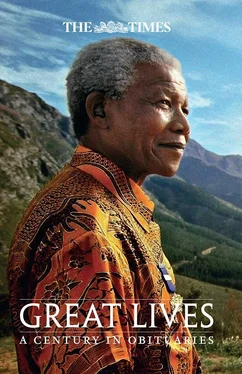As Kitchener rode up to greet and to thank the regiments while they were reforming the men received him with resounding cheers. He may not have won their love, for no man, not even Wellington, ever less sought by arts and graces to cultivate popularity among his men, but he had given them a fight after their own hearts, and their confidence in him was unbounded and complete.
Omdurman
By June, 1898, the rails reached the Atbara, and preparations were continued for the final advance at the next high Nile. The army was gradually concentrated by road and river at Wad Hamed, on the west bank of the Nile, 60 miles from Khartum. From this point, 22,000 strong, it set out in gallant array, on a broad front, covered and flanked by the gunboats and the mounted troops. The sun was scorching and the marching hard, but the men were in fine condition and their spirit was superb. By September 1 the plain of Kerreri was reached – the plain which, according to prophecy, was to be whitened by skulls – and the cavalry now reported that the enemy was advancing. Kitchener drew up his troops in crescent formation, their flanks resting on the river, the British brigades on the left. A night attack by the dervishes was expected and might have proved dangerous, but fortunately it was not attempted, and when dawn came on September 2 the fate of the Khalifa’s host was sealed. Kitchener had ridden forward at dawn to Jebel Surgam, a high hill which concealed the two armies from each other, and returned in serious mood, for he had seen some 52,000 dervishes advancing in ordered masses to the attack, and their aspect was formidable. Well marshalled and well led, they swept away the Egyptian cavalry and camel corps, hurling them down the hill, and then turned towards the river and came down upon Kitchener with flags waving, shouting their war cries, and led right gallantly by their Emirs. It was very brave but very hopeless.Kitchener gave the order to open fire when the dervish masses were within 1,700 yards. There was a clear field of fire with scarcely cover for a mouse. The hail of bullets from guns, rifles, and maxims smote the great host of barbarism and shattered it from end to end. The dervish fire was comparatively ineffective, and though individual fanatics struggled up to within short range no formed body came near enough to charge. Completely repulsed with frightful losses the masses melted away, the survivors reeled back, and the fire temporarily ceased.
Kitchener now ordered an advance upon Omdurman in échelon of brigades from the left, and this brought on the second phase of the battle. In the échelon formation Macdonald’s Egyptian brigade on the right was farthest out in the desert, and, as the advance began, the dervish reserves and other masses which had been recalled from the pursuit of the cavalry closed upon Macdonald and delivered a furious attack. The coolness of the commander and the steadiness of his troops saved the situation. Wauchope hurried to his support, while the other brigades wheeled to their right and drove the remnants of the Khalifa’s army away into the desert. A gallant attack by the 21st Lancers under Colonel Martin upon a large body of dervishes in a khor was a stirring incident of the fight on the left, but placed the Lancers out of court for pursuit. The army resumed its march, halted at the Khor Sambat to reform, and then entered Omdurman without allowing time for the enemy to recover and line the walls. Kitchener and his staff, after wandering about the town in some danger from fire, which continued intermittently throughout the night, sought shelter with Lyttelton’s brigade, which bivouacked in quarter-column protected by pickets on the desert side of the town, and from this bivouack ‘à la belle étoile’ the commander wrote the dispatch announcing the victory.
In this great spectacular, but all too one-sided battle there fell 10,700 gallant dervishes, while twice as many more left the field with wounds. The Anglo-Egyptian losses were 386 all told. The Khalifa’s great black flag, now at Windsor Castle, was captured, and if the Khalifa himself escaped for the time being it was not long before he and his remaining Emirs fell victims to Wingate’s troops. Mahdi-ism was smashed to pieces, Gordon was avenged, and the intolerable miseries of a rule which had reduced the population by some seven million souls were brought at last to an end. Two days after the victory a memorial service was held amidst the ruins of Gordon’s old Palace at Khartum. The British and Egyptian flags were hoisted on the walls close to the spot where Gordon fell. As Kitchener stood under the shade of the great tree on the river front to receive the congratulations of his officers, all the sternness had died out of him, for the aim of 14 long years of effort had been attained. He returned home to receive the honours and rewards which England does not stint to those who serve her well in war. He was raised to the peerage under the title of Baron Kitchener of Khartum, received the gcb, and was granted £30,000 and the thanks of both Houses of Parliament. The total cost of the campaigns of 1896–98 was only £2,354,000, of which £1,355,000 was spent on railways and gunboats. Of the total sum, rather less than £800,000 was paid by the British Government.
South Africa
Kitchener was not long left to enjoy his well-merited honours in peace. The Black Week of December, 1899, in South Africa caused Lord Roberts to be appointed Commander-in-Chief in the field, and with him there went out Lord Kitchener as Chief of Staff. During the time that Lord Roberts remained in South Africa Kitchener as much as possible effaced himself, and though always ready with counsel and assistance never gave a thought to his own aggrandizement. He was a model lieutenant and gave throughout a fine example of loyalty to his chief. He took part in all the marches and operations which carried the British flag from the Orange River by Paardeberg to Bloemfontein and Pretoria, and displayed energy in performing every duty that Lord Roberts saw fit to confide in him.
Paardeberg
When Cronje left his lines at Magersfontein and retreated eastward up the Modder, Lord Roberts was temporarily indisposed and Kitchener was virtually in command. When the morning of February 18, 1900, found Cronje still in laager at Wolvekraal, in a hollow encircled by commanding heights, upon Kitchener, in co-operation with French, devolved the duty of tackling him. Kitchener decided to strike while the enemy was within reach and issued orders for an advance upon the laager from east and west and by both banks of the river. The Boer position was bad. But the river bed afforded excellent cover and there was a good field of fire on both banks. Moreover, large bodies of Boers came up from the south and east throughout the day in order to extricate Cronje, and interfered materially with the orderly conduct of the fight. A long, wearing, and somewhat disconnected fight raged throughout the day, at the close of which the British troops had suffered 1,262 casualties without having penetrated the enemy’s lines. Kitchener rode rapidly during the day from one point of the battlefield to another endeavouring to electrify all with his own devouring activity. If the conduct of the fight was open to criticism it had this supreme merit – namely, that it was furiously energetic, and if it did not succeed in its immediate object it glued Cronje to his laager and drove away the Boers who were attempting to succour a comrade in distress. There are incidents in this fight which are still remembered with regret so far as Kitchener’s leading is concerned, but it is fair to say that in looking only to the main object set before him – namely, the destruction of Cronje’s force before it could escape or be reinforced – Kitchener was guided by correct principles, and that the subsequent surrender of the Boer force was largely due to the energetic manner in which Kitchener had smitten and hustled the enemy from the first.
Читать дальше












